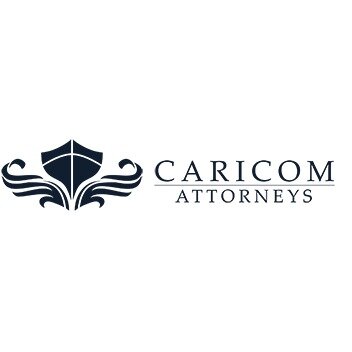Best Private Client Lawyers in St. George's
Share your needs with us, get contacted by law firms.
Free. Takes 2 min.
List of the best lawyers in St. George's, Grenada
About Private Client Law in St. George's, Grenada
Private Client law in St. George's, Grenada deals with legal services for individuals and families related to personal assets, trusts, wills, estate planning, taxation, and property management. This area of law is focused on helping clients protect and transfer their wealth, plan for the future, manage their estates during incapacity or after death, and address complex family or financial situations. In St. George's, Private Client services may also include international estate planning and navigating cross-border legal issues, given Grenada's appeal to both local and international residents.
Why You May Need a Lawyer
There are many reasons why you might require the services of a Private Client lawyer in St. George's, Grenada. Some common situations include:
- Drafting or updating a will to ensure your wishes are legally recognized.
- Creating trusts for asset protection, tax planning, or for the benefit of minors or vulnerable family members.
- Administering estates, including applying for probate and distributing assets.
- Resolving inheritance disputes or challenges to the validity of a will.
- Providing advice on international aspects of estate planning if you or your assets are located in multiple countries.
- Planning gifts or charitable donations in a tax-efficient manner.
- Dealing with incapacity by preparing powers of attorney or guardianship arrangements.
- Helping with property transfers commonly involving family homes or businesses.
Local Laws Overview
Grenada has its own laws, rules, and procedures governing wills, estates, trusts, and related matters. Key aspects relevant to Private Client practice in St. George's include:
- Wills and Succession: Grenada law requires that wills follow specific formalities - for example, they generally must be in writing and signed by the testator with two witnesses present. If someone passes away without a valid will, their estate is distributed according to Grenadian intestacy rules.
- Probate: The process of validating a will and distributing an estate is processed through the High Court, based in St. George's. There are different pathways and timeframes depending on whether there is a will or not.
- Trusts: Grenada recognizes various forms of trusts, which can be used for asset protection, tax planning, or providing for specific individuals or charities. Trust law in Grenada is influenced by English common law.
- Property Ownership: There are specific requirements and restrictions, especially for non-citizens, when it comes to property ownership or transfer.
- Taxation: Grenada does not levy inheritance or estate taxes, but there may be other relevant taxes on property transfers or gifts.
- Capacity and Powers of Attorney: Legal documents can be prepared to appoint others to act on your behalf should you become unable to make decisions for yourself.
Frequently Asked Questions
What is required for a will to be valid in Grenada?
A will in Grenada must generally be in writing, signed by the person making the will (the testator), and witnessed by two people who are present at the same time.
Do I need a lawyer to write my will?
While you can write your own will, hiring a lawyer is highly recommended to ensure it is valid, clear, and tailored to your circumstances. Mistakes or ambiguities can cause problems after death.
What happens if someone dies without a will in Grenada?
If there is no will, the estate is distributed according to Grenadian intestacy laws, which specify how assets are shared among relatives.
How long does probate take in St. George's?
Probate processes can vary, but in Grenada, it generally takes several months to over a year depending on the complexity of the estate and whether there are any disputes.
Can non-citizens own property or make a will in Grenada?
Yes, non-citizens can own property with proper licensing and can also make wills concerning assets in Grenada, but special rules and taxes may apply.
Are trusts recognized in Grenada?
Yes, trusts are recognized and used for various purposes such as estate planning, asset protection, and caring for minors or dependents.
What is a power of attorney and do I need one?
A power of attorney is a legal document allowing someone else to act on your behalf. It is often recommended for individuals concerned about incapacity due to age or health.
How can I reduce taxes on my estate in Grenada?
Grenada does not have inheritance or estate taxes, but planning with a lawyer can help you structure property transfers and gifts in the most efficient way possible, in compliance with other tax obligations.
Is it possible to challenge a will in Grenada?
Yes, wills can be challenged in court, usually on grounds such as lack of capacity, undue influence, or improper execution. You should seek legal advice if you intend to dispute a will.
How do I choose a Private Client lawyer in St. George's?
Look for lawyers experienced in Private Client work, with a good reputation and understanding of the local laws. Associations with the Grenada Bar and client testimonials may help in your decision.
Additional Resources
If you require further information or support, the following resources may be helpful:
- The Supreme Court of Grenada - for probate and estate matters
- Grenada Bar Association - to find qualified legal professionals
- Inland Revenue Division - for queries related to taxes on property or transfers
- Ministry of Legal Affairs - for information on legal procedures and regulations
- Legal Aid and Counseling Clinic - for those who may qualify for assistance
Next Steps
If you believe you need legal assistance with a Private Client matter in St. George's, it is important to act proactively. Here is how you can proceed:
- Gather all relevant documents related to your assets, property, and personal situation.
- Write down your questions or concerns to discuss with a lawyer.
- Contact a reputable law firm or an individual lawyer who specializes in Private Client issues.
- Request an initial consultation to assess your needs and obtain an overview of legal options.
- Follow legal advice promptly and ensure you understand each step before signing any papers or making decisions.
Timely action and expert guidance can help protect your interests and provide peace of mind for you and your loved ones.
Lawzana helps you find the best lawyers and law firms in St. George's through a curated and pre-screened list of qualified legal professionals. Our platform offers rankings and detailed profiles of attorneys and law firms, allowing you to compare based on practice areas, including Private Client, experience, and client feedback.
Each profile includes a description of the firm's areas of practice, client reviews, team members and partners, year of establishment, spoken languages, office locations, contact information, social media presence, and any published articles or resources. Most firms on our platform speak English and are experienced in both local and international legal matters.
Get a quote from top-rated law firms in St. George's, Grenada — quickly, securely, and without unnecessary hassle.
Disclaimer:
The information provided on this page is for general informational purposes only and does not constitute legal advice. While we strive to ensure the accuracy and relevance of the content, legal information may change over time, and interpretations of the law can vary. You should always consult with a qualified legal professional for advice specific to your situation.
We disclaim all liability for actions taken or not taken based on the content of this page. If you believe any information is incorrect or outdated, please contact us, and we will review and update it where appropriate.
Browse private client law firms by service in St. George's, Grenada
St. George's, Grenada Attorneys in related practice areas.










